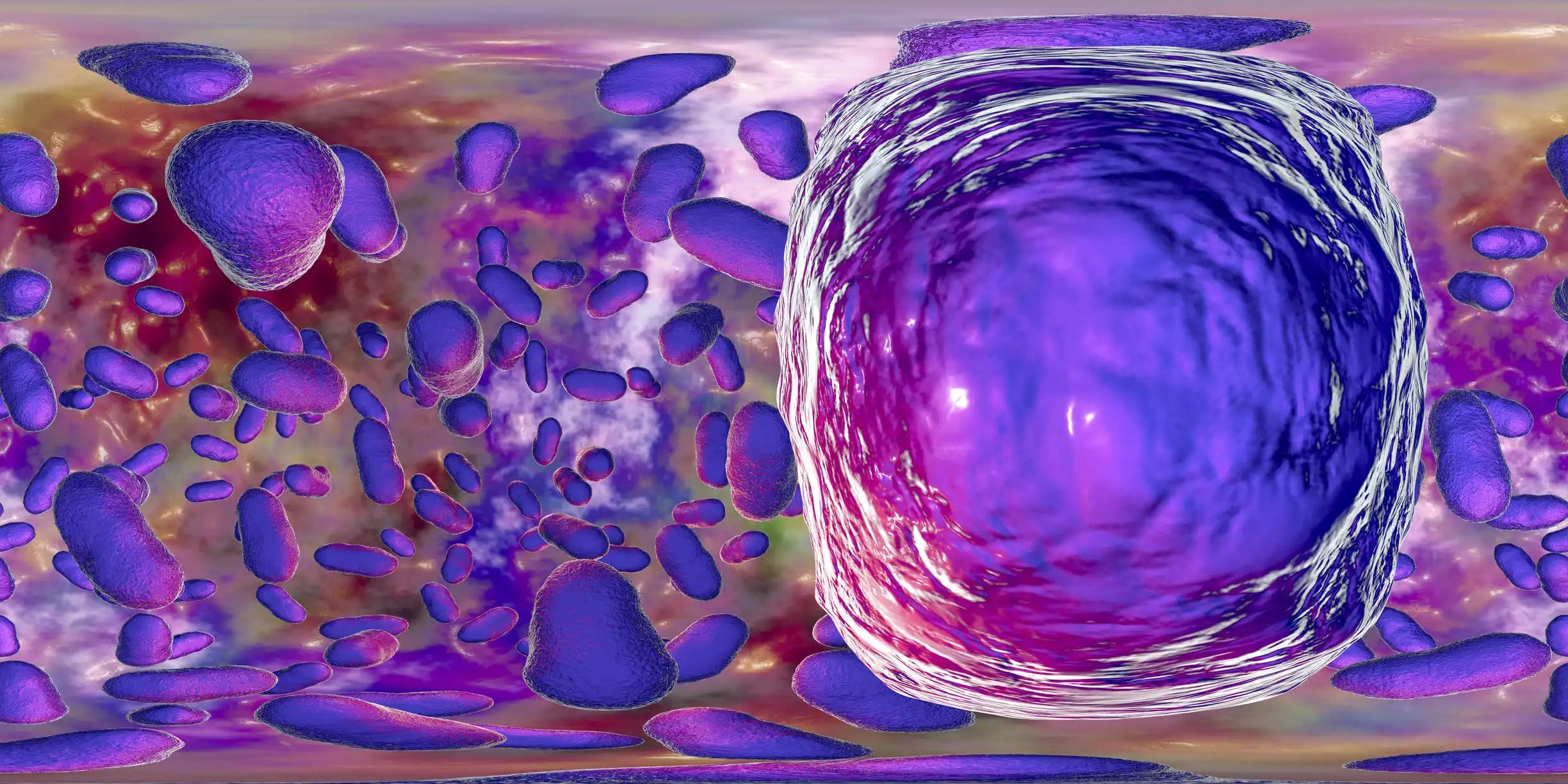KEY TAKEAWAYS
- The phase 3 RATIONALE-302 trial aimed to evaluate the HRQoL and symptoms of patients with advanced or metastatic ESCC treated with tislelizumab or ICC.
- The study enrolled a subset of 392 Asian patients out of 512 patients who were randomized to receive either tislelizumab or ICC.
- Patients treated with tislelizumab exhibited stable GHS and QoL scores, whereas patients with ICC experienced a decline in these parameters, especially in fatigue scores.
- The study demonstrated a consistent eating score in patients treated with tislelizumab, whereas in patients with intrahepatic cholangiocarcinoma.
- Tislelizumab maintained or improved HRQoL and symptoms in Asian patients with ESCC, while ICC led to a decline in these parameters.
The examination of the intent-to-treat (ITT) population in the RATIONALE-302 (NCT03430843) study revealed that patients (pts) who were administered tislelizumab maintained their overall health-related quality of life (HRQoL), fatigue, and physical functioning. Conversely, patients (pts) who received investigator-chosen chemotherapy (ICC) experienced a decline in these parameters. The post-hoc analysis evaluated the HRQoL and esophageal squamous cell carcinoma symptoms in Asian and non-Asian subpopulations of patients included in the RATIONALE-302 study. Patients diagnosed with advanced or metastatic esophageal squamous cell carcinoma (ESCC) who experienced disease progression after systemic therapy were subjected to a randomization process with a 1:1 ratio. The patients were then administered tislelizumab or ICC (paclitaxel, docetaxel, or irinotecan). The patient’s HRQoL was assessed using the European Organization for Research and Treatment of Cancer Quality of Life Questionnaire (EORTC QLQ-C30) and the QLQ-OES18.
The change in Health-Related Quality of Life (HRQoL) scores were assessed from baseline to weeks 12 and 18 using a mixed model for repeated measurements, which yielded the least-squares mean score. The nominal p-values reported serve a purely descriptive function. The present study was performed on a subset of 392 Asian patients (tislelizumab N=192; ICC N=200) out of 512 patients. Patients administered with Tislelizumab exhibited stable General Health Status (GHS) and Quality of Life (QoL). In contrast, fatigue scores deteriorated in both groups, with a more pronounced decline in patients with Invasive Cervical Cancer (ICC). The alteration from the initial state was comparable in both groups concerning physical performance at weeks 12 and 18. The nutritional assessment demonstrated a consistent eating score in patients treated with tislelizumab, whereas patients with intrahepatic cholangiocarcinoma exhibited a decline in their eating score, notably at the 18th week.
In the 12th week, there was an improvement in reflux among patients who received tislelizumab, while those with ICC experienced a decline in their condition. A comparable outcome trend was observed in the minor non-Asian cohort (tislelizumab N=49; ICC N=47). The health-related quality of life (HRQoL) and esophageal squamous cell carcinoma (ESCC)-related symptoms of the Asian subgroup of patients treated with tislelizumab remained stable or improved. In contrast, patients with intrahepatic cholangiocarcinoma (ICC) experienced worsening symptoms. The HRQoL outcomes observed in Asian patients support the HRQoL discoveries in the overall population, indicating that tislelizumab may serve as a promising alternative for second-line treatment in patients with advanced or metastatic esophageal squamous cell carcinoma.
Source :https://oncologypro.esmo.org/meeting-resources/esmo-asia-congress/rationale-302-tislelizumab-vs-chemotherapy-as-second-line-treatment-for-patients-with-advanced-or-metastatic-esophageal-squamous-cell-carcinoma-e
Clinical Trial:https://clinicaltrials.gov/ct2/show/NCT03430843
S. Kim, E. Van Cutsem, J.A. Ajani, L. Shen, G. Barnes, N. Ding, A. Tao, T. Xia, L. Zhan, K. Kato/RATIONALE-302: Tislelizumab vs chemotherapy as second-line treatment for patients with advanced or metastatic esophageal squamous cell carcinoma (ESCC): Impact on health-related quality of life (HRQoL) in Asian patients/ESMO Asia Congress | OncologyPRO. (n.d.). Oncologypro.esmo.org. Retrieved May 2, 2023, from https://oncologypro.esmo.org/meeting-resources/esmo-asia-congress/rationale-302-tislelizumab-vs-chemotherapy-as-second-line-treatment-for-patients-with-advanced-or-metastatic-esophageal-squamous-cell-carcinoma-e



